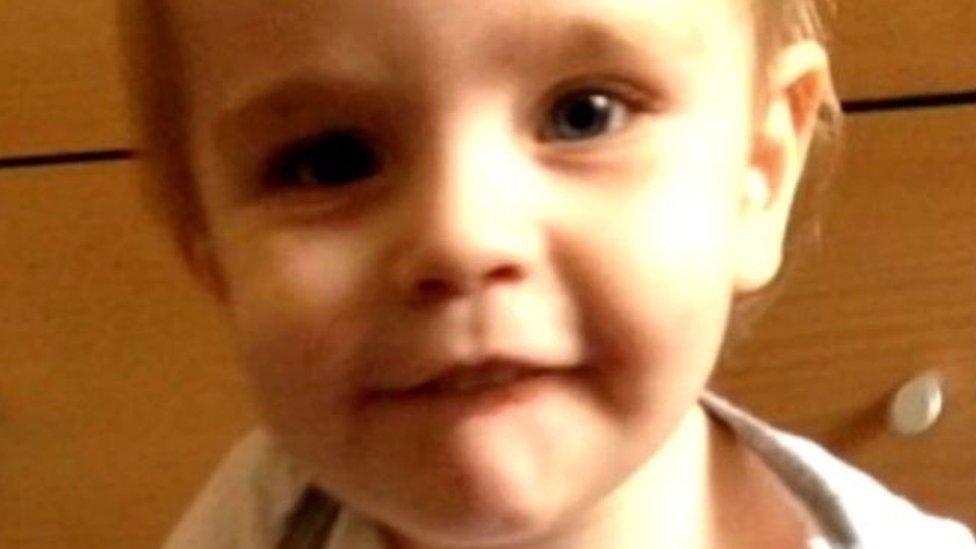Will lessons be learned from Liam Fee's death?
- Published
Liam Fee's nursery, child minder and another woman had raised concerns with the authorities about the two-year-old
One of the questions raised by the case of Liam Fee - whose mother and her partner were convicted of his murder - has been "could anyone have saved him?"
On a number of occasions concerns were raised about the little boy, who was only two-and-a-half-years old when he died.
His nursery alerted social services, worried by a change in Liam, and the fact that he was losing weight and had a number of injuries.
Liam's childminder had also made her concerns known.
The High Court in Livingston heard from Patricia Smith, who used the same childminder. Ms Smith told the jury she phoned Fife Social Work department after meeting the Fees in the street.
'Off the radar'
Liam was in his buggy but she told the court she didn't know if he was drugged or dead.
A senior Fife social worker admitted in court that at one point Liam "fell off their radar." A member of staff had gone off sick, no-one else was assigned and Liam's case was not reviewed until further concerns were raised.
It has already been announced that these and other issues will be addressed by a Significant Case Review (SCR). It will be chaired by Dr Jacqui Mok, a retired paediatrician and child protection specialist.
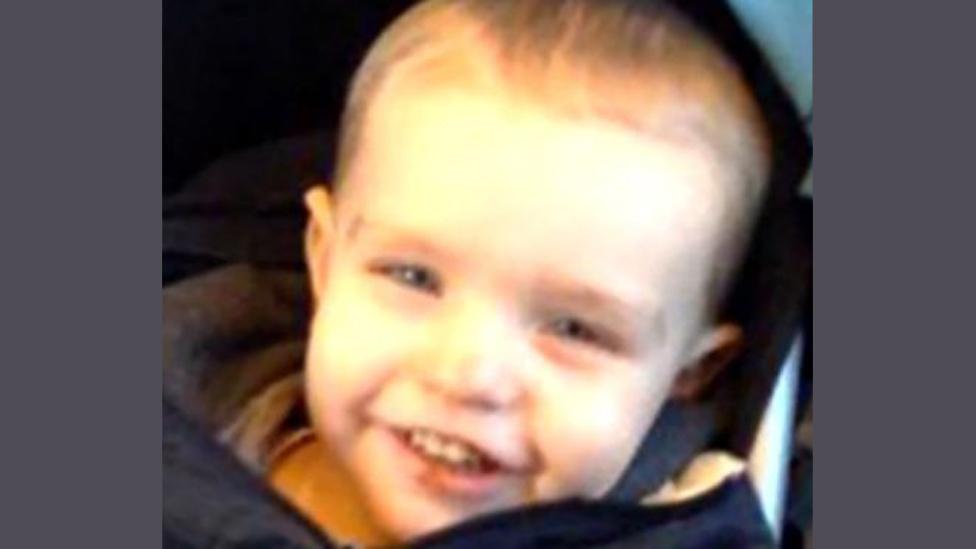
Liam Fee was found dead at a house near Glenrothes in Fife on 22 March 2014
She will review all records and interview staff involved in the circumstances leading up to Liam's death.
Douglas Dunlop, vice-chair of Fife's Child Protection Committee, which represents the local authority, police, NHS, and the voluntary sector, said: "From that, we will have a picture of the involvement of all services with Liam prior to his death which will give us a picture of any lessons which can be learned."
He added: "I know it was said in court that there was a break in contact from a specific team in relation to Liam and other services continued to be involved with him during that period.
"That is the sort of issue that will be examined in some detail through the SCR."
Previous cases
It will be the second SCR in Fife in two years after the murder of Mikaeel Kular, who was beaten to death in January 2014 by his mother, who was later jailed for culpable homicide.
It also looked at the actions of Edinburgh council's social work department after Mikaeel's family moved there.
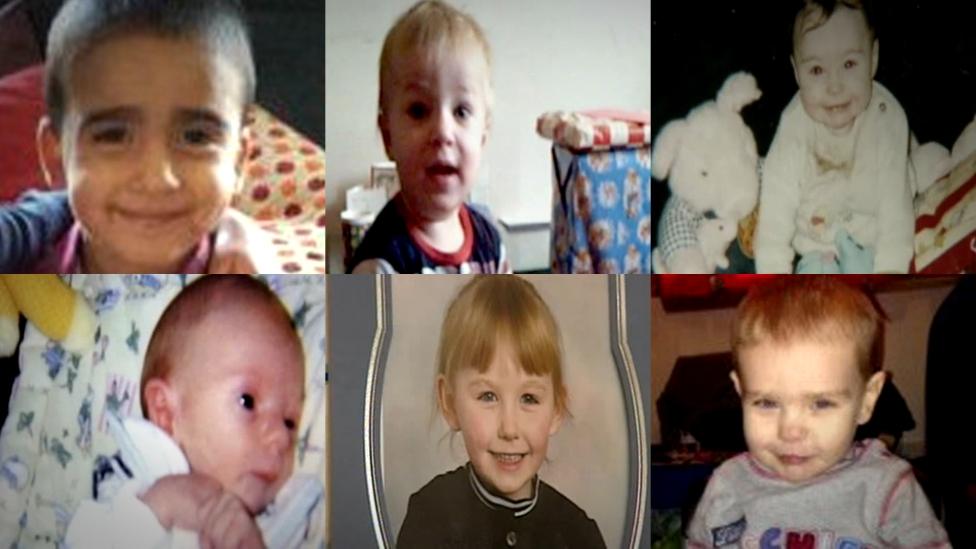
Tragic children: (clockwise from top left) Mikaeel Kular, Brandon Muir, Carla Nicole Bone, Liam Fee, Danielle Reid and Caleb Ness
A total of 13 actions for future learning and implementation were identified in the report, external, including a "national case transfer protocol for non-child protection cases across local authority areas".
And there has been a series of previous tragic cases in which reviews have been carried out after a child was killed by those who should have protected them.
They include:
Brandon Muir, external, badly beaten by his mother's boyfriend in Dundee in 2008
Carla Nicole Bone, external, battered to death in a remote cottage near Huntly in Aberdeenshire in 2002
Caleb Ness, external, the victim of violent drug-addicted parents, killed in 2001
And Danielle Reid, external, murdered by her mother's boyfriend in Inverness in 2002.
The Scottish Association of Social Workers (SASW) has admitted these cases are tragic, but its manager, Trisha Hall, said bureaucracy and resources were problems which must be addressed.
Traumatic work
She said: "I don't think there are enough children and family social workers. There is a real issue about under-staffing.
"But the main issue that still impacts is that people still spend 80% of their time writing reports or doing paperwork and only 20% of actual social work time is spent in engaging with children and families."
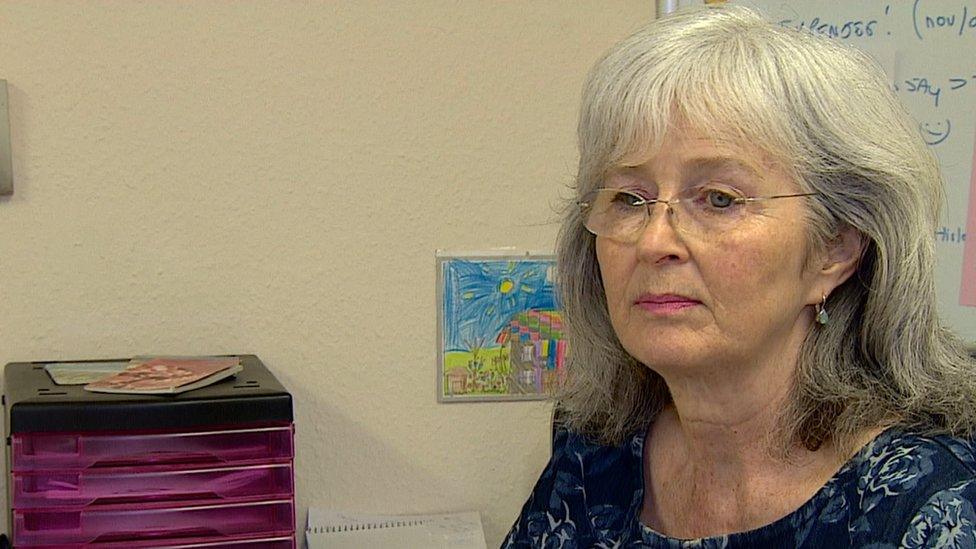
Trisha Hall said social workers "leave the profession because their work is relentless and traumatic"
She said one of the reasons for the shortage of specialists was the traumatic work they carry out.
"There is only so much you can take," she said. "Part of the concerns that we have currently in the UK is we're talking about eight years maximum in the life of a child protection social worker.
"Many people leave the profession because they can't cope with this any more, because it is relentless."
The challenge for those investigating Liam Fee's tragically short life is to ensure the lessons they uncover are learned.
Because once more we are asking what more can be done to protect our children.
- Published31 May 2016
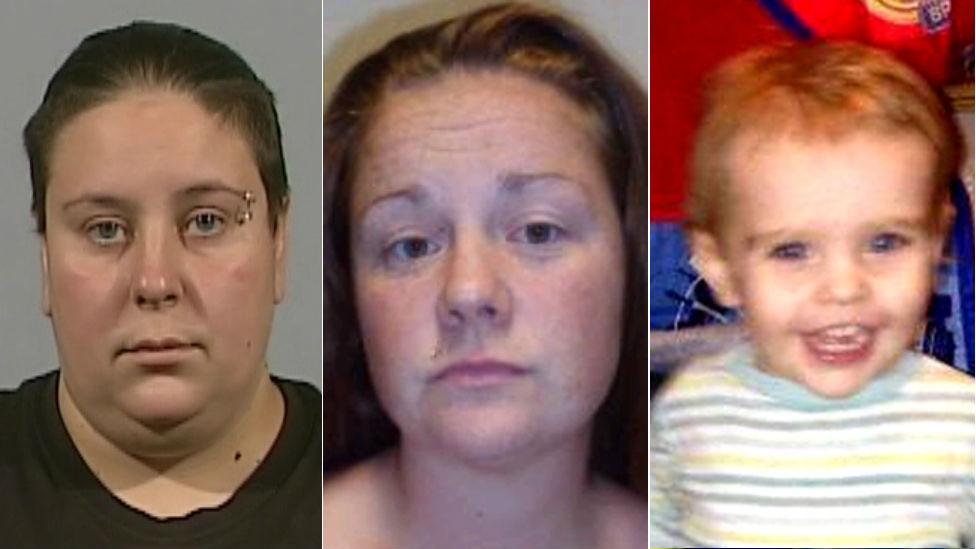
- Published31 May 2016
